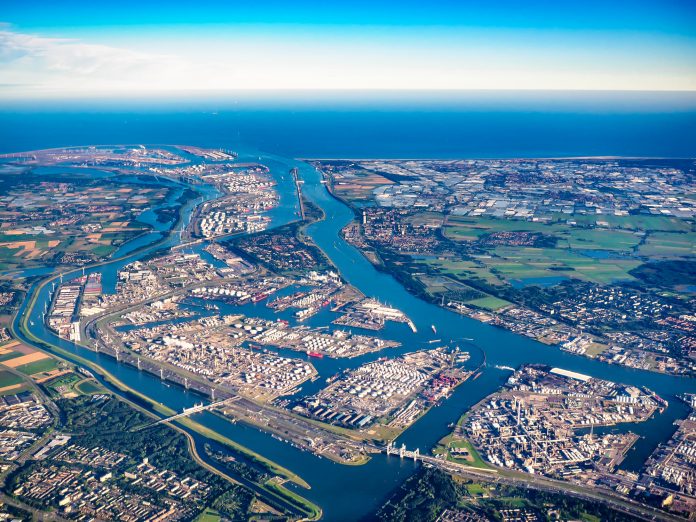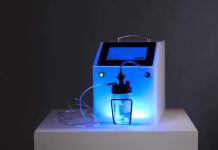The Government of the Netherlands has launched a major funding drive to support the arts, culture and heritage sectors in the Netherlands, as well as in science and innovation, headed up by Minister of Education, Culture and Science, Ingrid van Engelshoven
By way of background, we know that Ingrid van Engelshoven was appointed as Minister of Education, Culture and Science in the third administration of Dutch Prime Minister, Mark Rutte in October 2017.
She began her career in 1989 as a policy officer for the Democrats ‘66 parliamentary party in the House of Representatives and served as its Secretary from 1994 to 1996. She then worked as an adviser to the Netherlands Bar Association before acting as Head of Strategy at the Ministry of Transport, Public Works & Water Management from 2000 to 2004 and Director of the Foundation for Responsible Alcohol Consumption from 2004 to 2008.
In 2010, she joined the municipal executive of The Hague with responsibility for education and public services before becoming a Member of Parliament in 2017. The Ministry of Education, Culture & Science works to create a smart, skilled and creative environment for the Netherlands.
Its key objectives are to ensure:
- Everyone gets a good education
- Everyone is prepared for personal independence and responsibility
- Everyone has the opportunity to experience and enjoy culture
- Teachers, artists and scientists have the right conditions to be able to carry out their work.
This article will look at what the Government of the Netherlands is doing to invest in some of these areas, including science and innovation, Investment in art, culture and heritage.
In March 2018, van Engelshoven announced a major initiative designed to support these goals, with plans to invest €80 million a year on art and culture, as well as a further €325 million to ensure future generations can continue to enjoy heritage sites.
A joint talent programme has been created to help a new generation of artists and “culture makers” to develop and flourish. The Government of the Netherlands invested €2.7 million in the programme in 2018, rising to €4.9 million in 2019 and subsequent years.
To boost arts and cultural education, the Government of the Netherlands committed €2.1 million in 2018, rising to €4.9 million in 2019 and subsequent years, to enable all schoolchildren to visit the Rijksmuseum, the national Dutch museum, or another museum during school time.
In addition, the Government of the Netherlands is expanding its music education grant scheme from 1,000 to 1,600 schools. Schools will also be challenged to introduce their pupils to “the more provocative and confrontational side of culture”, with the Government of the Netherlands investing more in Amsterdam’s EYE film museum and youth theatre companies. (1)
National Science Agenda
Did you know that Dutch scientific research ranks among the best in the world? As such, the Government of the Netherlands is taking measures to keep it at the top.
Certainly, Ingrid van Engelshoven plans substantial investment in science to provide more scope for innovative research. Going into further detail, we know that an additional €70 million was made available in 2018, with additional increases of €108 million in 2019 and €130 million per year from 2020. The National Science Agenda brings together universities; other knowledge institutions like the Royal Netherlands Meteorological Institute (KNMI) and the Netherlands Organisation for Applied Scientific Research (TNO), not to mention a number of stakeholders and organisations from the private sector to work on scientific breakthroughs and social issues.
Examples include research include cybersecurity, sustainable food, water management, safe societies, inequality of opportunity and even the origins of life. “This type of cooperation is vital for tackling social issues effectively. And it gives science a greater impact,” said Ms Van Engelshoven.
Science and technology
The Government of the Netherlands acknowledges that the science and technology sector faces significant challenges and as such, we know that additional funds are being made available to increase the scope of high-quality research and graduate training in the sector. The funding will offer more scope for investment in humanities and social sciences, two areas that play a vital role in fields, such as conflict mediation, healthcare and sustainability,
Looking at the wider picture, we know that the Nether-lands is eager to increase the role it plays in world-class international research facilities, such as ESO and CERN and as such, €60 million will be provided for this purpose. It’s worth adding here that Dutch participation in new research projects can foster further chances for the private sector to be involved in who can build the required facilities.
Supercomputer
In the space available, I wanted to mention that these exciting plans also include a significant focus on digital research infrastructure, something that can improve the uptake of research and optimise access to data (‘open science’) in the pursuit of seeking solutions to scientific, social and economic issues. From 2018 onwards, an annual budget of €20 million has been set aside for digital research infrastructure, with the biggest part of this targeted at high- performance computing. As I am sure you know, supercomputers have enormous storage and computational capacities, which help facilitate research into big data. In the view of the Ministry of Education, Culture & Science, this type of research is vital to improve our understanding of a number of areas, such as climate change. Certainly, supercomputers also play a growing and essential vital role in making data accessible and fit for practical application in health and social care plus other sectors.
Applied research
Finally, let’s turn our thoughts to applied research and it’s worth noting that the Government of the Netherlands wants to strengthen this in universities and has, therefore, agreed for extra funding to be made available for this purpose, slowly increasing to €25 million from 2020. This work is most useful because universities of applied science bridge the gap between theoretical knowledge and practical innovation. Because of this, they are ideally placed to make a major contribution to research that focuses on innovation and social issues – and they also have a considerable impact on a regional basis. (2)
References
1 https://www.government.nl/government/members-of-cabinet/ingrid-van-engelshoven/news/2018/03/12/government-shows-commitment-to-culture-with-major-funding-drive
2 https://www.government.nl/government/members-of-cabinet/ingrid-van-engelshoven/news/2018/03/09/additional-funding-earmarked-primarily-for-innovative-research
Open Access Government











